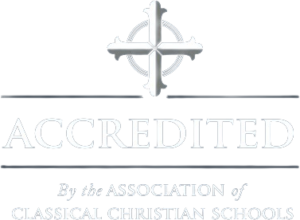If you think of a school as a machine, then you have to conclude that every part of a school is necessary. A car with all its parts except for a radiator hose is not going far. Likewise, a school without, say, books or desks won’t get very far either. But what is the most essential part of a school? What is most needful for a child’s education to be successful?
Is it technology? Maybe if we put a device in every classroom, or better, in every student’s hands and teach students to be tech-savvy and get every student hyper-connected, then education will be effective.
Is it money? One might be led to conclude so based on the headlines. Spending on education in our country has grown exponentially in recent decades, even while student performance has steadily declined.
Is it teachers? Again, if you follow the nightly news, you might conclude that teachers are the sine qua non of a successful education. Many educational policy makers are advocating that teacher pay be based on student outcomes. Poor teachers, then, get washed out of the system, and what is broken gets fixed (or test scores rise, at least).
Or is it facilities? Opportunities for students to escape failing schools? New methods and progressive curricula? Federal government-mandated standards?
Possibilities could be multiplied ad nauseam. But ask teachers who are actually in the classroom day by day. They will tell you what theorists and politicians may very well have missed: what is most needful for a successful education is committed parents. A class could meet under a shade tree on a picnic table with nothing but a teacher and a shared book, but if the students have parents who are involved in their children’s learning, motivated to excellence, and committed to holding their children accountable, then that education can still be effective.
A Christian worldview teaches that God governs mankind through several overlapping realms: the church, the civil magistrate, and the family. And it is the family – parents, not governments – that is tasked with educating children (see Deut 6 and Eph 6). So parents are called by the Lord God to educate their children for Him, and good schools know that they educate children in loco parentis, in the place of parents. Schools don’t replace parents; rather, they partner with parents to aid them in their responsibility under Almighty God to train their children for Christ.
Therefore, parents should recognize this responsibility. Parents should see that their part in the educational machine is essential and irreplaceable. And more: parents should embrace a vision for their children’s education. So look carefully at your own attitudes about reading, math, Latin, singing, and writing. Your children share your attitude about these things. If you think a subject is a waste of time, your children will, too. If you love to read, if you fill your home with books and ideas, and let your imagination spill over to your children, you are doing something that teachers, curricula, and electronic devices can never accomplish alone.
God has created you, parents, to educate your children. It is the most important business you can engage in. We can praise God for truly excellent and Christ-loving teachers at Providence Classical Christian School. We can thank God for the riches of classical Christian education. We have wonderful books and buildings. But we must remember that visionary and dedicated parents are what is most needful for a child’s education to be successful.
So thank you and God bless you in your calling, parents.
If you think of a school as a machine, then you have to conclude that every part of a school is necessary. A car with all its parts except for a radiator hose is not going far. Likewise, a school without, say, books or desks won’t get very far either. But what is the most essential part of a school? What is most needful for a child’s education to be successful?
Is it technology? Maybe if we put a device in every classroom, or better, in every student’s hands and teach students to be tech-savvy and get every student hyper-connected, then education will be effective.
Is it money? One might be led to conclude so based on the headlines. Spending on education in our country has grown exponentially in recent decades, even while student performance has steadily declined.
Is it teachers? Again, if you follow the nightly news, you might conclude that teachers are the sine qua non of a successful education. Many educational policy makers are advocating that teacher pay be based on student outcomes. Poor teachers, then, get washed out of the system, and what is broken gets fixed (or test scores rise, at least).
Or is it facilities? Opportunities for students to escape failing schools? New methods and progressive curricula? Federal government-mandated standards?
Possibilities could be multiplied ad nauseam. But ask teachers who are actually in the classroom day by day. They will tell you what theorists and politicians may very well have missed: what is most needful for a successful education is committed parents. A class could meet under a shade tree on a picnic table with nothing but a teacher and a shared book, but if the students have parents who are involved in their children’s learning, motivated to excellence, and committed to holding their children accountable, then that education can still be effective.
A Christian worldview teaches that God governs mankind through several overlapping realms: the church, the civil magistrate, and the family. And it is the family – parents, not governments – that is tasked with educating children (see Deut 6 and Eph 6). So parents are called by the Lord God to educate their children for Him, and good schools know that they educate children in loco parentis, in the place of parents. Schools don’t replace parents; rather, they partner with parents to aid them in their responsibility under Almighty God to train their children for Christ.
Therefore, parents should recognize this responsibility. Parents should see that their part in the educational machine is essential and irreplaceable. And more: parents should embrace a vision for their children’s education. So look carefully at your own attitudes about reading, math, Latin, singing, and writing. Your children share your attitude about these things. If you think a subject is a waste of time, your children will, too. If you love to read, if you fill your home with books and ideas, and let your imagination spill over to your children, you are doing something that teachers, curricula, and electronic devices can never accomplish alone.
God has created you, parents, to educate your children. It is the most important business you can engage in. We can praise God for truly excellent and Christ-loving teachers at Providence Classical Christian School. We can thank God for the riches of classical Christian education. We have wonderful books and buildings. But we must remember that visionary and dedicated parents are what is most needful for a child’s education to be successful.
So thank you and God bless you in your calling, parents.








